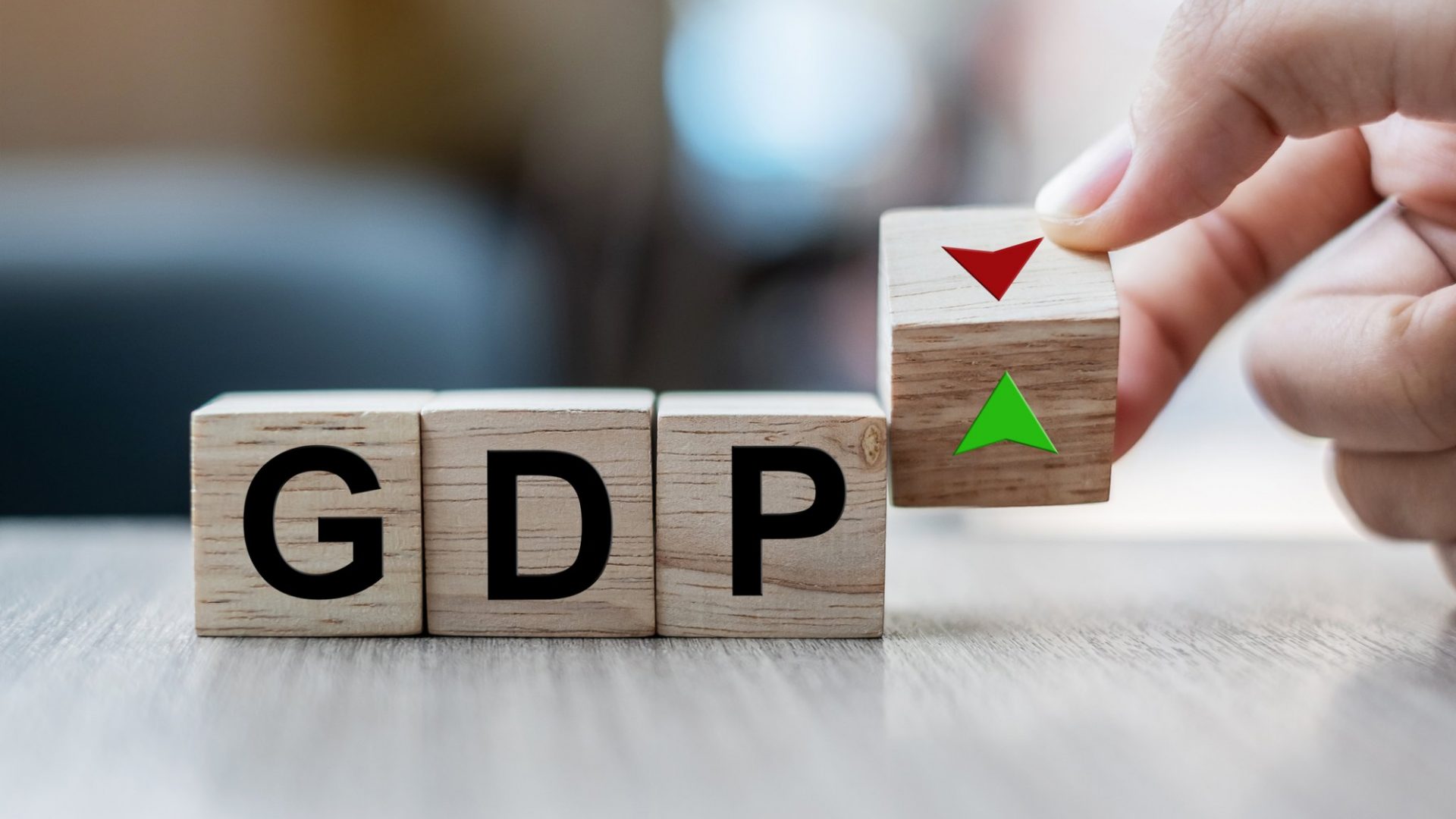The numbers: The U.S. economy grew rapidly in the spring and repaired most of the damage caused by the pandemic thanks to widespread coronavirus vaccinations and a nearly full reopening of the economy.
Gross domestic product, the official scorecard for the economy, expanded at a 6.5% annual pace in the second quarter. The size of the economy now exceeds pre-pandemic levels after a short but deep recession last year.
The U.S. economy is bigger now than it was before Covid GDP grows at 6.5% annual pace in the second quarter.
The goods news has been tempered by the recent surge in the delta strain of the coronavirus that’s induced the Biden administration to recommend mask-wearing again. It’s unclear how much damage the new outbreak could cause to the economy.
Economists polled by the Wall Street Journal had forecast a 9.1% growth rate in GDP. A bigger-than-expected decline in inventories and a surprising decline in government spending held down the overall increase.
The U.S. also grew 6.3% in the first quarter.
Last spring, the U.S. posted the single biggest economic contraction on record when the pandemic slammed the economy. GDP fell by a more than 30% annual clip.
Big picture: The surge in growth in the spring gave the economy plenty of momentum heading into the third quarter, but the GDP is mostly a look in the rearview mirror. It tells us where the economy has been, but not where it’s going.
The good news is the economy appears to have plenty of staying power.
For one thing, governments have been cautious about reimposing restrictions as the delta variant causes Covid cases to rise again in some states. Just as important, consumers built up a ton of savings during the pandemic and have plenty to spend. Businesses are also investing heavily to prepare for a post-pandemic world.
The economy will have to do without trillions of dollars in government financial stimulus, but as long as coronavirus cases stay low, the recovery should forge ahead at an accelerated pace.
The numbers: The U.S. economy grew rapidly in the spring and repaired most of the damage caused by the pandemic thanks to widespread coronavirus vaccinations and a nearly full reopening of the economy.
Gross domestic product, the official scorecard for the economy, expanded at a 6.5% annual pace in the second quarter. The size of the economy now exceeds pre-pandemic levels after a short but deep recession last year.
The goods news has been tempered by the recent surge in the delta strain of the coronavirus that’s induced the Biden administration to recommend mask-wearing again. It’s unclear how much damage the new outbreak could cause to the economy.
Economists polled by the Wall Street Journal had forecast a 9.1% growth rate in GDP. A bigger-than-expected decline in inventories and a surprising decline in government spending held down the overall increase.
The U.S. also grew 6.3% in the first quarter.
Last spring, the U.S. posted the single biggest economic contraction on record when the pandemic slammed the economy. GDP fell by a more than 30% annual clip.
Key details: Consumer spending, the main engine of the economy, rocketed 11.8% higher in the spring at an annual pace, the government said Thursday. That’s four times faster than the typical increase each quarter.
Americans bought plenty of goods such as new cars and consumer electronics, but they really splurged on the sort of services they avoided during the pandemic. Dining out, entertainment, travel, vacations and the like.
The delta variant could put a dent in spending on services, but that remains to be seen.
Business investment rose 3% as companies spent more on equipment and intellectual property. They likely would have invested even more money in producing goods if not for widespread shortages of supplies and labor.
These shortages have forced companies to pay higher prices and, in some cases, scale back factory hours.
Spending fell on structures such as office buildings, plants and oil rigs.
Rapidly increasing sales and slower production meanwhile triggered a big decline in the amount of goods that businesses stockpiled for future sale.
The value of inventories sank by a whopping $165.9 billion. The larger-than-expected drawn down also depressed the headline GDP figure and suggests these headwinds could constrain economic growth through the rest of the year.
Investment in new housing, meanwhile, sank 10% to mark the first decline in a year.
Home builders face similar problems with high material prices and finding skilled craftsmen. There’s plenty of demand for new homes with mortgage rates so low, but builders can’t build houses fast enough.
In a surprising twist, government outlays fell 1.5%. Washington has pumped trillions of dollars of stimulus money into the economy, but spending dropped off in the second quarter after a 4.2% spike in the first three months of the year.
Although the U.S. is running record international trade deficits again, the widening gap only had a small negative effect on GDP. Imports rose 7.8% and exports increased 6%.
Inflation, as expected, surged in the spring. The annual rate of inflation soared to 6.4% from 3.8% in the first quarter. That’s the biggest increase since 1982.
The Federal Reserve insists the burst of inflation is almost entirely the result of the economic recovery and that it will fade by next year.
What they are saying? “GDP is now back above its pre-crisis peak,” said senior economist Bill Adams of PNC Financial Services. “The economy has recovered much faster than after the 2008-09 recession, when it took three and a half years for real GDP to reach its pre-crisis level.”
“The economy continues to grow at a robust pace — well above the long-term trend — as we dig ourselves out of the hole that was created by last year’s economic shutdown,” said chief investment officer Jim Baird of Plante Moran Financial Advisors. “The wildcard is the growing concern about the risk presented by the COVID-19 delta variant and what its spread could mean in the coming months.”
Article by Jeffry Bartash @ Market Watch









